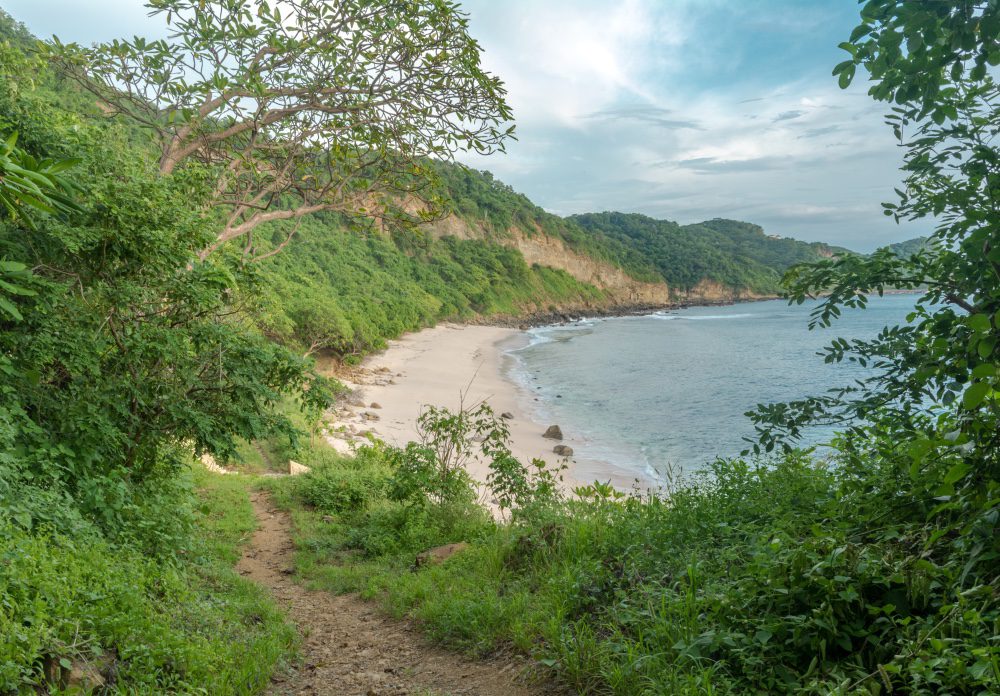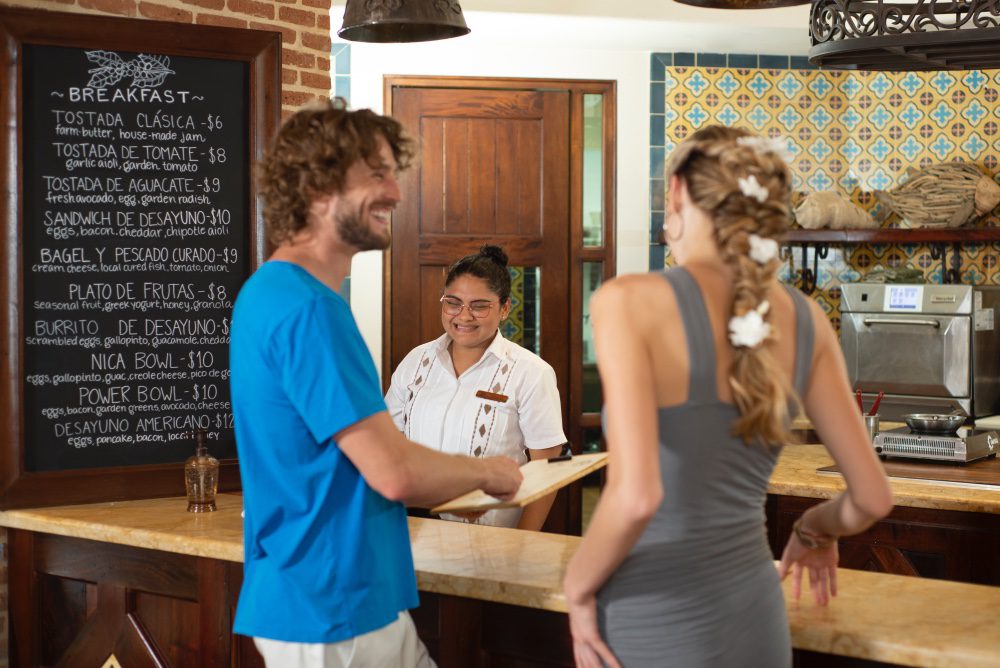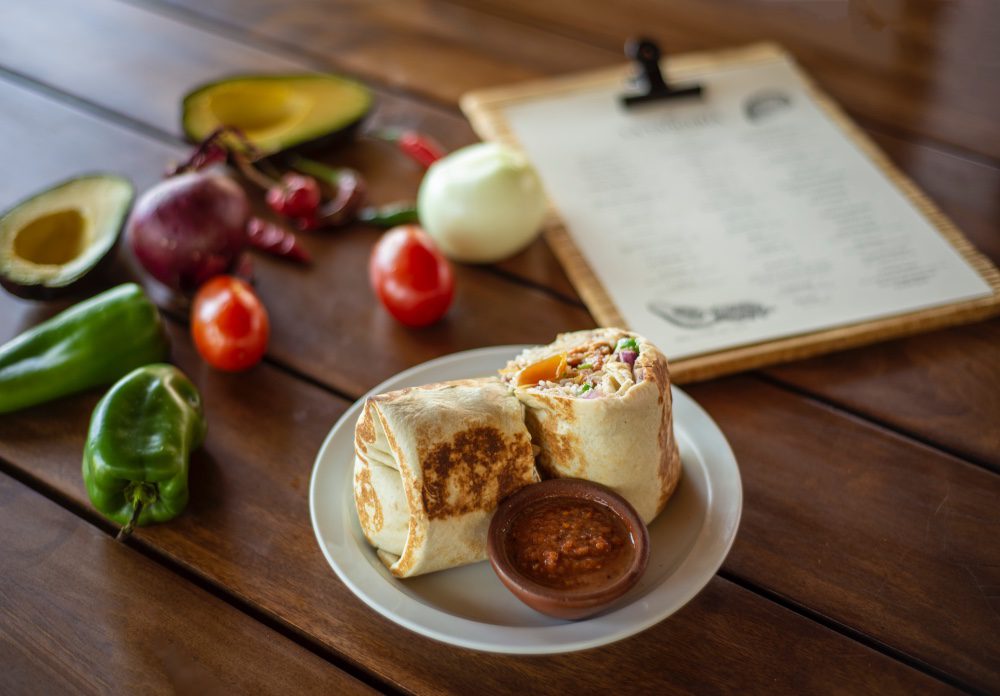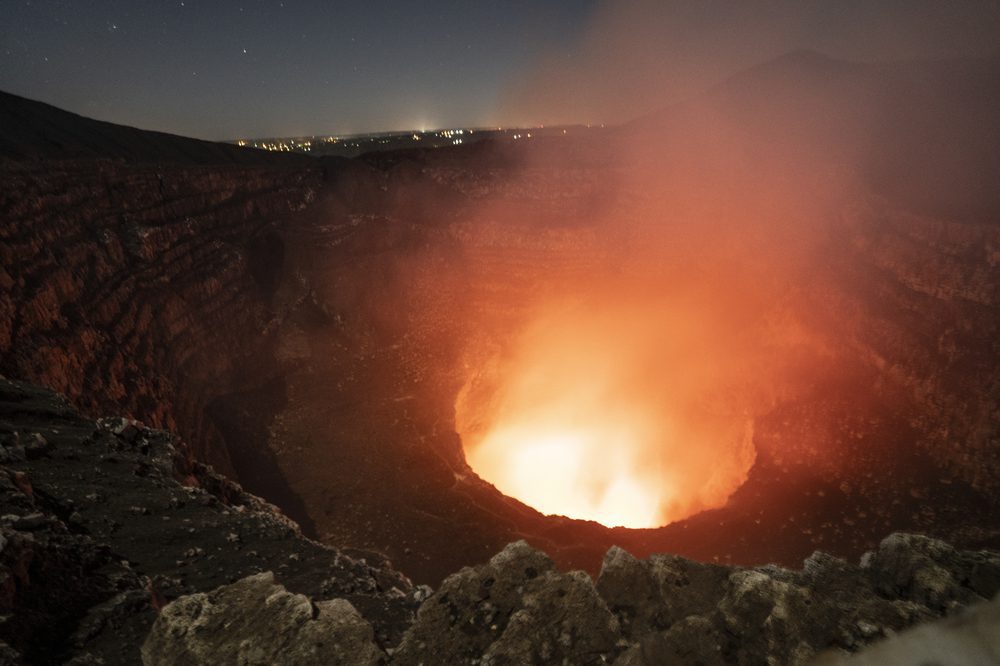Luxury Group Vacations Start Here at Nicaragua’s Most Iconic Coastal Retreat
Rancho Santana provides the setting, service, and scale to bring everyone together—effortlessly.
Nicaragua facts and information can provide insight into the beauty and culture of one of the most vibrant...

Nicaragua facts and information can provide insight into the beauty and culture of one of the most vibrant countries in Central America. Nicaragua features fascinating history, culture, geography, and people, making it an exciting place to visit. It’s the largest nation in Central America, with Managua serving as its capital.
The country is also one of the most affordable countries to see and offers plenty of activities to explore. From beautiful beaches to breathtaking volcanoes, Nicaragua has something for everyone.
Read on as we cover Nicaragua facts and FAQs, so you can get the most out of your trip. We discuss Nicaragua’s climate, people, culture, language, food, etc.
Nicaragua has a tropical climate with plenty of sunshine and warm weather year-round. Nicaragua lies in the heart of Central America, making it vulnerable to hurricanes from June through November. The country experiences two distinct seasons, the rainy season (May to October) and the dry season (December to April).
The average temperature ranges between 21 to 34°C (71 to 94°F) throughout Nicaragua, although it dips lower in mountainous regions such as Somoto Canyon and Jinotega. Rainfall ranges from 24 to 50 inches per month, depending on the area.
Nicaragua is blessed with abundant sunshine; visitors can expect 60% to 90% sunny days. It’s one of the few countries in Central America not prone to regular cloudy days or fog. Its central location also contributes to its tropical climate.

Nicaragua is a country full of vibrant and friendly people. The culture blends Native American and Spanish traditions, making Nicaragua an exciting place for visitors to explore. Nicaragua’s traditional art forms include plateria (silver jewelry-making), pottery, woodcarving, weaving, and more.
The Mesoamerican influence can be seen in Nicaragua’s cuisine, festivals, and celebrations, such as the El Güegüense Dance Festival, which celebrates Nicaragua’s independence from Spain. Catholicism has been present in Nicaragua since the conquest by Córdoba in 1524. Nicaragua holds several religious festivities, including Semana Santa (Holy Week), which celebrates Easter with processions nationwide.
Nicaraguans are renowned for their hospitality, and there are numerous opportunities to experience Nicaragua’s art, culture, food, and traditions through festivals, parades, and other community events. Nicaragua is an enriching country with warm people who will make you feel at home during your stay.
Nicaragua is home to abundant nature, making it an excellent destination for ecotourism. Its largest lake, Lake Nicaragua, covers 8,157 square kilometers (3,190 square miles) and boasts abundant bird life and freshwater sharks. Nicaragua also has two main island groups in the Caribbean Sea: the Corn Islands and the Pearl Cays.
The Corn Islands are located off Nicaragua’s Caribbean coast and feature white-sand beaches and crystal-clear waters. They are known for their excellent diving sites, with colorful coral reefs attracting snorkelers worldwide.
Isla de Ometepe is a unique destination with two volcanoes connected by a narrow strip of land. Two of Nicaragua’s most active volcanoes, Concepción and Maderas, can be found on this island. For bird watchers and nature lovers, Ometepe is known for its lush vegetation and wildlife.
Nicaragua’s landscape is dotted with numerous volcanoes that offer stunning views of the landscape below. Nicaragua has five active volcanoes. Masaya Volcano National Park features one of Nicaragua’s most active volcanoes, with bubbling lava lakes and breathtaking landscapes.
Nicaragua also offers some of Central America’s best beaches. San Juan del Sur boasts beautiful white sand beaches and crystal blue waters, ideal for swimming, surfing, and sunbathing. In addition, Nicaragua is home to various nature reserves, making it a perfect destination for outdoor adventurers seeking a unique experience.
Nicaragua is an ideal destination for those looking to experience a unique culture, abundant nature, and friendly people. At Rancho Santana Nicaragua Resort, you can experience the nation’s natural beauty and culture, from its beaches to its volcanoes. Enjoy the best that Nicaragua has to offer in a luxurious setting with access to activities such as horseback riding, fishing, surfing, and more. Come and explore Nicaragua’s unique culture and stunning nature for yourself.

You can’t research Nicaragua without learning about the country’s delicious cuisine. Nicaraguan food is a reflection of its rich cultural heritage. As a result, Nicaragua’s culinary scene offers dishes influenced by Spanish, African, and Native American flavors. For example, Nicaragua’s national dish, gallo pinto (literally «spotted rooster»), consists of rice and beans cooked with spices such as cumin, garlic, onion, and peppers.
Other traditional Nicaraguan dishes or comidas tipicas de Nicaragua include quesillo Nicaragua (a Nicaraguan cheese rolled in tortilla with sour cream and pickled onions), salpicón (a light salad made from beef, tomatoes, onions, parsley, lime juice, and spices), Nicaragua carne asada (grilled beef served with a tomato-based sauce) and vigorón (a traditional Nicaraguan dish made with boiled cassava root, cabbage, and pork cracklings).
Fritangas are an essential part of Nicaragua’s culinary culture. These open-air restaurants specialize in fried foods such as tostones (fried plantains), yuca frita (fried cassava root), and chicharrones (fried pork rinds). Fritangas are especially popular among Nicaraguans, who enjoy these establishments’ rustic atmosphere and flavor. Nicaraguan cuisine is a unique blend of flavors worldwide.
Managua, Nicaragua’s capital city, is in the center of the country and is home to more than 1.9 million people. The city has a vibrant cultural and entertainment scene with many museums, art galleries, and theaters. It also houses Nicaragua’s largest shopping mall with over 250 stores and several other malls throughout the city. In addition, Nicaragua’s International Airport (Aeropuerto Internacional Augusto Cesar Sandino) serves both domestic and international flights and provides convenient access to Nicaragua’s most popular tourist destinations.
Granada is Nicaragua’s oldest colonial city, founded by Spanish settlers in 1524. Offering an array of vibrant nightlife venues serving delicious Nicaraguan cuisine, Granada is also home to Nicaragua’s most visited museums and churches, such as La Merced Church and El Museo de Arquitectura Colonial. In addition, Granada is on Nicaragua’s beautiful Lake Nicaragua, which offers a wide array of recreational activities for visitors.
The city of Masaya is just 27 kilometers from Managua and serves as the gateway to Masaya Volcano National Park. This area features unique landscapes with lava tunnels, bubbling crater lakes, thermal vents, and other attractions, making it an ideal destination for adventure and stunning views.
León, Nicaragua’s second-largest city, is known for its colonial architecture and vibrant culture. Leon is home to Nicaragua’s oldest university and many important historical monuments, including the León Cathedral. León’s cultural highlights include its many festivals, such as the Fiesta Patronales de Santiago Apostol, Nicaragua’s largest annual festival.
Jinotega is a city in Nicaragua’s mountainous northern region. It is known for its lush vegetation, crystal-clear rivers, and serene cloud forests. Jinotega has numerous historical sites like the Fortaleza del Cerro, which offers stunning views of Nicaragua’s surrounding landscape.
San Juan del Sur, Nicaragua, is a premier beach destination boasting pristine white sand beaches with luxury resorts and restaurants serving traditional Nicaraguan cuisine. In addition, San Juan del Sur features some of Central America’s best surfing spots and popular venues for visitors seeking to experience Nicaragua’s nightlife.
Bluefields Nicaragua is a Caribbean port city located on Nicaragua’s southeastern coast. Bluefields offers visitors a unique blend of traditional Latino culture with the influence of English-speaking Creole and African communities. Bluefields has something for everyone, from its beautiful beaches to its colorful markets.
With various cities and regions offering breathtaking views, mouthwatering cuisine, and plenty of things to do, Nicaragua is the perfect destination for those seeking a truly unique and unforgettable experience. Nicaragua’s beautiful culture, history, and nature make it an ideal vacation destination for travelers worldwide.
Rancho Santana Resort offers the perfect Nicaragua getaway. Come and experience Nicaragua’s culture, scenery, and cuisine with us. Visit our website to book your stay today.

What is the capital of Nicaragua?
The capital of Nicaragua is Managua. It’s also the largest city.
What is on Nicaragua’s flag?
Nicaragua’s flag consists of three horizontal bands colored blue, white, and blue, with Nicaragua’s coat of arms in the center.
Where is Nicaragua on the map?
Nicaragua is in the Central American region, bordered by Honduras to the north and Costa Rica to the south. The Caribbean Sea and the Pacific Ocean also border Nicaragua.
What is Nicaragua’s currency?
Nicaragua’s official currency is the Nicaragua córdoba (NIO).
What is the population of Nicaragua?
The population of Nicaragua is estimated at 6.7 million people.
What is the time in Nicaragua?
Nicaragua is in the Central Standard Time Zone, six hours behind UTC (Coordinated Universal Time).
What is Nicaragua’s Language?
The official language of Nicaragua is Spanish. However, many other languages are spoken in Nicaragua, including English and indigenous dialects.
Rancho Santana provides the setting, service, and scale to bring everyone together—effortlessly.
In the evolving world of luxury travel, sustainability is no longer optional; it is essential. Rancho Santana, located on Nicaragua’s Emerald Coast, offers that rare combination.
¿En qué le gustaría recibir ayuda?